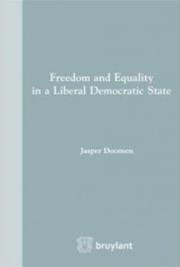do not carry those ends in view, but naturally praise or blame whatever
pleases or displeases them, they do not seem much to regard this
distinction, but consider prudence under the character of virtue as well
as benevolence, and penetration as well as justice. Nay, we find, that
all moralists, whose judgment is not perverted by a strict adherence
to a system, enter into the same way of thinking; and that the antient
moralists in particular made no scruple of placing prudence at the head
of the cardinal virtues. There is a sentiment of esteem and approbation,
which may be excited, in some degree, by any faculty of the mind, in its
perfect state and condition; and to account for this sentiment is the
business of Philosophers. It belongs to Grammarians to examine what
qualities are entitled to the denomination of virtue; nor will they
find, upon trial, that this is so easy a task, as at first sight they
may be apt to imagine.
The principal reason why natural abilities are esteemed, is because of
their tendency to be useful to the person, who is possessed of them.
It is impossible to execute any design with success, where it is not
conducted with prudence and discretion; nor will the goodness of our
intentions alone suffice to procure us a happy issue to our enterprizes.
Men are superior to beasts principally by the superiority of their
reason; and they are the degrees of the same faculty, which set such an
infinite difference betwixt one man and another. All the advantages of
art are owing to human reason; and where fortune is not very capricious,
the most considerable part of these advantages must fall to the share of
the prudent and sagacious.
When it is asked, whether a quick or a slow apprehension be most
valuable? whether one, that at first view penetrates into a subject, but
can perform nothing upon study; or a contrary character, which must
work out every thing by dint of application? whether a clear head, or
a copious invention? whether a profound genius, or a sure judgment? in
short, what character, or peculiar understanding, is more excellent than
another? It is evident we can answer none of these questions, without
considering which of those qualities capacitates a man best for the
world, and carries him farthest in any of his undertakings.
There are many other qualities of the mind, whose merit is derived from
the same origin, industry, perseverance, patience, activity, vigilance,
application, constancy, with other virtues of that kind, which it will
be easy to recollect, are esteemed valuable upon no other account,
than their advantage in the conduct of life. It is the same case with
temperance, frugality, economy, resolution: As on the other hand,
prodigality, luxury, irresolution, uncertainty, are vicious, merely
because they draw ruin upon us, and incapacitate us for business and
action.
As wisdom and good-sense are valued, because they are useful to the
person possessed of them; so wit and eloquence are valued, because they
are immediately agreeable to others. On the other hand, good humour is
loved and esteemed, because it is immediately agreeable to the person
himself. It is evident, that the conversation of a man of wit is very
satisfactory; as a chearful good-humoured companion diffuses a joy over
the whole company, from a sympathy with his gaiety.
These qualities,
therefore, being agreeable, they naturally beget love and esteem, and
answer to all the characters of virtue.
It is difficult to tell, on many occasions, what it is that renders
one man's conversation so agreeable and entertaining, and another's so
insipid and distasteful. As conversation is a transcript of the mind as
well as books, the same qualities, which render the one valuable, must
give us an esteem for the other. This we shall consider afterwards. In
the mean time it may be affirmed in general, that all the merit a
man may derive from his conversation (which, no doubt, may be very
considerable) arises from nothing but the pleasure it conveys to those
who are present.
In this view, cleanliness is also to be regarded as a virtue; since it
naturally renders us agreeable to others, and is a very considerable
source of love and affection. No one will deny, that a negligence in
this particular is a fault; and as faults are nothing but smaller vices,
and this fault can have no other origin than the uneasy sensation, which
it excites in others, we may in this instance, seemingly so trivial,
dearly discover the origin of the moral distinction of vice and virtue
in other instances.
Besides all those qualities, which render a person lovely or valuable,
there is also a certain JE-NE-SCAI-QUOI of agreeable and handsome, that
concurs to the same effect. In this case, as well as in that of wit and
eloquence, we must have recourse to a certain sense, which acts without
reflection, and regards not the tendencies of qualities and characters.
Some moralists account for all the sentiments of virtue by this sense.
Their hypothesis is very plausible. Nothing but a particular enquiry can
give the preference to any other hypothesis. When we find, that almost
all the virtues have such particular tendencies; and also find, that
these tendencies are sufficient alone to give a strong sentiment of
approbation: We cannot doubt, after this, that qualities are approved
of, in proportion to the advantage, which results from them.
The decorum or indecorum of a quality, with regard to the age, or
character, or station, contributes also to its praise or blame. This
decorum depends, in a great measure, upon experience. It is usual to
see men lose their levity, as they advance in years.
Such a degree
of gravity, therefore, and such years, are connected together in our
thoughts. When we observe them separated in any person's character, this
imposes a kind of violence on our imagination, and is disagreeable.
That faculty of the soul, which, of all others, is of the least
consequence to the character, and has the least virtue or vice in its
several degrees, at the same time, that it admits of a great variety of
degrees, is the memory. Unless it rise up to that stupendous height
as to surprize us, or sink so low as, in some measure, to affect the
judgment, we commonly take no notice of its variations, nor ever mention
them to the praise or dispraise of any person. It is so far from being a
virtue to have a good memory, that men generally affect to complain of
a bad one; and endeavouring to persuade the world, that what they say
is entirely of their own invention, sacrifice it to the praise of genius
and judgment. Yet to consider the matter abstractedly, it would be
difficult to give a reason, why the faculty of recalling past ideas with
truth and clearness, should not have as much merit in it, as the
faculty of placing our present ideas, in such an order, as to form true
propositions and opinions. The reason of the difference certainly must
be, that the memory is exerted without any sensation of pleasure or
pain; and in all its middling degrees serves almost equally well in
business and affairs. But the least variations in the judgment are
sensibly felt in their consequences; while at the same time that faculty
is never exerted in any eminent degree, without an extraordinary delight
and satisfaction. The sympathy with this utility and pleasure bestows a
merit on the understanding; and the absence of it makes us consider the
memory as a faculty very indifferent to blame or praise.
Before I leave this subject of natural abilities, I must observe, that,
perhaps, one source of the esteem and affection, which attends them, is
derived from the importance and weight, which they bestow on the person
possessed of them. He becomes of greater consequence in life. His
resolutions and actions affect a greater number of his fellow-creatures.
Both his friendship and enmity are of moment. And it is easy to observe,
that whoever is elevated, after this manner, above the rest of mankind,
must excite in us the sentiments of esteem and approbation. Whatever is
important engages our attention, fixes our thought, and is contemplated
with satisfaction. The histories of kingdoms are more interesting than
domestic stories: The histories of great empires more than those
of small cities and principalities: And the histories of wars and
revolutions more than those of peace and order. We sympathize with the
persons that suffer, in all the various sentiments which belong to their
fortunes. The mind is occupied by the multitude of the objects, and by
the strong passions, that display themselves. And this occupation or
agitation of the mind is commonly agreeable and amusing.
The same theory
accounts for the esteem and regard we pay to men of extraordinary parts
and abilities. The good and ill of multitudes are connected with their
actions. Whatever they undertake is important, and challenges our
attention. Nothing is to be over-looked and despised, that regards them.
And where any person can excite these sentiments, he soon acquires our
esteem; unless other circumstances of his character render him odious
and disagreeable.
SECT. V SOME FARTHER REFLECTIONS CONCERNING THE NATURAL
VIRTUES
It has been observed, in treating of the passions, that pride
and humility, love and hatred, are excited by any advantages or
disadvantages of the mind, body, or fortune; and that these advantages
or disadvantages have that effect by producing a separate impression of
pain or pleasure. The pain or pleasure, which arises from the general
survey or view of any action or quality of the mind, constitutes its
vice or virtue, and gives rise to our approbation or blame, which is
nothing but a fainter and more imperceptible love or hatred. We have
assigned four different sources of this pain and pleasure; and in order
to justify more fully that hypothesis, it may here be proper to observe,
that the advantages or disadvantages of the body and of fortune, produce
a pain or pleasure from the very same principles. The tendency of any
object to be useful to the person possess d of it, or to others; to
convey pleasure to him or to others; all these circumstances convey an
immediate pleasure to the person, who considers the object, and command
his love and approbation.
To begin with the advantages of the body; we may observe a phaenomenon,
which might appear somewhat trivial and ludicrous, if any thing coued be
trivial, which fortified a conclusion of such importance, or ludicrous,
which was employed in a philosophical reasoning. It is a general
remark, that those we call good women's men, who have either signalized
themselves by their amorous exploits, or whose make of body promises any
extraordinary vigour of that kind, are well received by the fair sex,
and naturally engage the affections even of those, whose virtue prevents
any design of ever giving employment to those talents.
Here it is
evident, that the ability of such a person to give enjoyment, is the
real source of that love and esteem he meets with among the females; at
the same time that the women, who love and esteem him, have no prospect
of receiving that enjoyment themselves, and can only be affected by
means of their sympathy with one, that has a commerce of love with him.
This instance is singular, and merits our attention.
Another source of the pleasure we receive from considering bodily
advantages, is their utility to the person himself, who is possessed of
them. It is certain, that a considerable part of the beauty of men, as
well as of other animals, consists in such a conformation of members, as
we find by experience to be attended with strength and agility, and to
capacitate the creature for any action or exercise.
Broad shoulders,
a lank belly, firm joints, taper legs; all these are beautiful in
our species because they are signs of force and vigour, which being
advantages we naturally sympathize with, they convey to the beholder a
share of that satisfaction they produce in the possessor.
So far as to the utility, which may attend any quality of the body. As
to the immediate pleasure, it is certain, that an air of health, as well
as of strength and agility, makes a considerable part of beauty; and
that a sickly air in another is always disagreeable, upon account of
that idea of pain and uneasiness, which it conveys to us. On the other
hand, we are pleased with the regularity of our own features, though
it be neither useful to ourselves nor others; and it is necessary at a
distance, to make it convey to us any satisfaction. We commonly consider
ourselves as we appear in the eyes of others, and sympathize with the
advantageous sentiments they entertain with regard to us.
How far the advantages of fortune produce esteem and approbation from
the same principles, we may satisfy ourselves by reflecting on our
precedent reasoning on that subject. We have observed, that our
approbation of those, who are possess d of the advantages of fortune,
may be ascribed to three different causes. First, To that immediate
pleasure, which a rich man gives us, by the view of the beautiful
cloaths, equipage, gardens, or houses, which he possesses. Secondly,
To the advantage, which we hope to reap from him by his generosity and
liberality. Thirdly, To the pleasure and advantage, which he himself
reaps from his possessions, and which produce an agreeable sympathy in
us. Whether we ascribe our esteem of the rich and great to one or all of
these causes, we may clearly see the traces of those principles, which
give rise to the sense of vice and virtue. I believe most people, at
first sight, will be inclined to ascribe our esteem of the rich to
self-interest, and the prospect of advantage. But as it is certain,
that our esteem or deference extends beyond any prospect of advantage
to ourselves, it is evident, that that sentiment must proceed from
a sympathy with those, who are dependent on the person we esteem and
respect, and who have an immediate connexion with him.
We consider him
as a person capable of contributing to the happiness or enjoyment of
his fellow-creatures, whose sentiments, with regard to him, we naturally
embrace. And this consideration will serve to justify my hypothesis
in preferring the third principle to the other two, and ascribing our
esteem of the rich to a sympathy with the pleasure and advantage, which
they themselves receive from their possessions. For as even the other
two principles cannot operate to a due extent, or account for all the
phaenomena, without having recourse to a sympathy of one kind or other;
it is much more natural to chuse that sympathy, which is immediate and
direct, than that which is remote and indirect. To which we may add,
that where the riches or power are very great, and render the person
considerable and important in the world, the esteem attending them, may,
in part, be ascribed to another source, distinct from these three,
viz. their interesting the mind by a prospect of the multitude, and
importance of their consequences: Though, in order to account for the
operation of this principle, we must also have recourse to sympathy; as
we have observed in the preceding section.
It may not be amiss, on this occasion, to remark the flexibility of our
sentiments, and the several changes they so readily receive from
the objects, with which they are conjoined. All the sentiments of
approbation, which attend any particular species of objects, have a
great resemblance to each other, though derived from different sources;
and, on the other hand, those sentiments, when directed to different
objects, are different to the feeling, though derived from the same
source. Thus the beauty of all visible objects causes a pleasure pretty
much the same, though it be sometimes derived from the mere species and
appearance of the objects; sometimes from sympathy, and an idea of their
utility. In like manner, whenever we survey the actions and characters
of men, without any particular interest in them, the pleasure, or pain,
which arises from the survey (with some minute differences) is, in the
main, of the same kind, though perhaps there be a great diversity in the
causes, from which it is derived. On the other hand, a convenient house,
and a virtuous character, cause not the same feeling of approbation;
even though the source of our approbation be the same, and flow
from sympathy and an idea of their utility. There is something very
inexplicable in this variation of our feelings; but it is what we have
experience of with regard to all our passions and sentiments.
SECT. VI CONCLUSION OF THIS BOOK
Thus upon the whole I am hopeful, that nothing is wanting to an accurate
proof of this system of ethics. We are certain, that sympathy is a very
powerful principle in human nature. We are also certain, that it has a
great influence on our sense of beauty, when we regard external
objects, as well as when we judge of morals. We find, that it has force
sufficient to give us the strongest sentiments of approbation, when it
operates alone, without the concurrence of any other principle; as in
the cases of justice, allegiance, chastity, and good-manners. We may
observe, that all the circumstances requisite for its operation are
found in most of the virtues; which have, for the most part, a tendency
to the good of society, or to that of the person possessed of them. If
we compare all these circumstances, we shall not doubt, that sympathy is
the chief source of moral distinctions; especially when we reflect, that
no objection can be raised against this hypothesis in one case, which
will not extend to all cases. Justice is certainly approved of for no
other reason, than because it has a tendency to the public good: And the
public good is indifferent to us, except so far as sympathy interests
us in it. We may presume the like with regard to all the other virtues,
which have a like tendency to the public good. They must derive all
their merit from our sympathy with those, who reap any advantage from
them: As the virtues, which have a tendency to the good of the person
possessed of them, derive their merit from our sympathy with him.
Most people will readily allow, that the useful qualities of the mind
are virtuous, because of their utility. This way of thinking is so
natural, and occurs on so many occasions, that few will make any scruple
of admitting it. Now this being once admitted, the force of sympathy
must necessarily be acknowledged. Virtue is considered as means to an
end. Means to an end are only valued so far as the end is valued.
But the happiness of strangers affects us by sympathy alone. To that
principle, therefore, we are to ascribe the sentiment of approbation,
which arises from the survey of all those virtues, that are useful
to society, or to the person possessed of them. These form the most
considerable part of morality.
Were it proper in such a subject to bribe the reader's assent, or employ
any thing but solid argument, we are here abundantly supplied with
topics to engage the affections. All lovers of virtue (and such we
all are in speculation, however we may degenerate in practice) must
certainly be pleased to see moral distinctions derived from so noble a
source, which gives us a just notion both of the generosity and capacity
of human nature. It requires but very little knowledge of human affairs
to perceive, that a sense of morals is a principle inherent in the soul,
and one of the most powerful that enters into the composition. But this
sense must certainly acquire new force, when reflecting on itself,
it approves of those principles, from whence it is derived, and finds
nothing but what is great and good in its rise and origin. Those who
resolve the sense of morals into original instincts of the human mind,
may defend the cause of virtue with sufficient authority; but want
the advantage, which those possess, who account for that sense by an
extensive sympathy with mankind. According to their system, not only
virtue must be approved of, but also the sense of virtue: And not only
that sense, but also the principles, from whence it is derived. So that
nothing is presented on any side, but what is laudable and good.
This observation may be extended to justice, and the other virtues of
that kind. Though justice be artificial, the sense of its morality is
natural. It is the combination of men, in a system of conduct, which
renders any act of justice beneficial to society. But when once it has
that tendency, we naturally approve of it; and if we did not so, it
is impossible any combination or convention coued ever produce that
sentiment.
Most of the inventions of men are subject to change.
They depend upon
humour and caprice. They have a vogue for a time, and then sink into
oblivion. It may, perhaps, be apprehended, that if justice were allowed
to be a human invention, it must be placed on the same footing. But the
cases are widely different. The interest, on which justice is founded,
is the greatest imaginable, and extends to all times and places. It
cannot possibly be served by any other invention. It is obvious, and
discovers itself on the very first formation of society.
All these
causes render the rules of justice stedfast and immutable; at least,
as immutable as human nature. And if they were founded on original
instincts, coued they have any greater stability?
The same system may help us to form a just notion of the happiness, as
well as of the dignity of virtue, and may interest every principle
of our nature in the embracing and cherishing that noble quality.
Who indeed does not feel an accession of alacrity in his pursuits of
knowledge and ability of every kind, when he considers, that besides the
advantage, which immediately result from these acquisitions, they
also give him a new lustre in the eyes of mankind, and are universally
attended with esteem and approbation? And who can think any advantages
of fortune a sufficient compensation for the least breach of the social
virtues, when he considers, that not only his character with regard to
others, but also his peace and inward satisfaction entirely depend upon
his strict observance of them; and that a mind will never be able to
bear its own survey, that has been wanting in its part to mankind and
society? But I forbear insisting on this subject. Such reflections
require a work a-part, very different from the genius of the present.
The anatomist ought never to emulate the painter; nor in his accurate
dissections and portraitures of the smaller parts of the human body,
pretend to give his figures any graceful and engaging attitude or
expression. There is even something hideous, or at least minute in the
views of things, which he presents; and it is necessary the objects
should be set more at a distance, and be more covered up from sight, to
make them engaging to the eye and imagination. An anatomist, however,
is admirably fitted to give advice to a painter; and it is even
impracticable to excel in the latter art, without the assistance of the
former. We must have an exact knowledge of the







